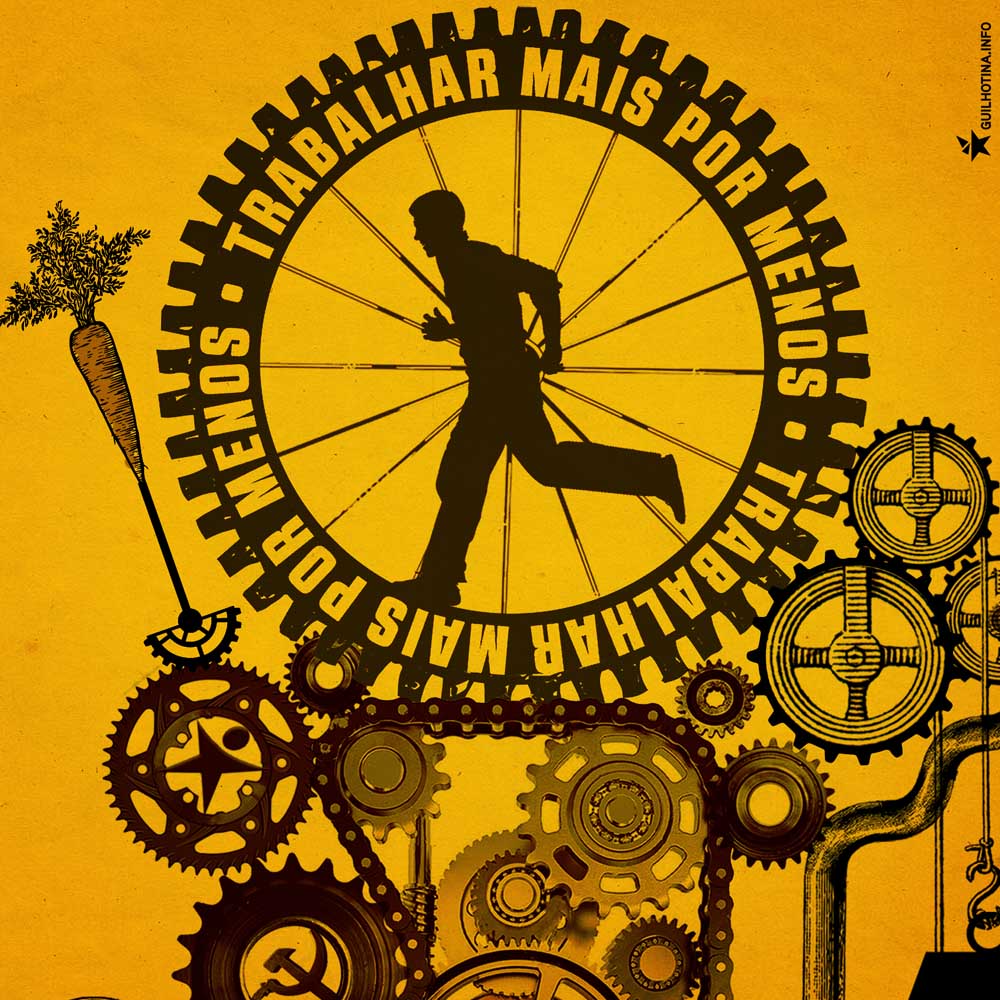Portugal // The legacy of the Contraption – Wages, Unemployment and Poverty~ 7 min

This is one of four articles we’re going to publish about the legacy of the “Contraption” (Geringonça). These articles are mostly aimed at our external audience, which many times gets a completely erroneous idea of the supposed “economic miracles” happening in the country, when in fact we are still firmly in the hands of the good old neoliberal center (and the national debt creditors). For those unfamiliar with Portuguese politics, a few basic notions to keep in mind relative to the entities referred to in the article:
Contraption – The nickname of the government formed by the Socialist Party, with parliamentary support from the Left Bloc and the Unitary Democratic Coalition (Portuguese Communist Party and the Ecologist Party “The Greens”). Initially a derogatory term, it kind of stuck and is now somewhat ambiguous. Governing since 2015, with new elections scheduled for October 6.
Socialist Party (PS) – One of the two neoliberal center parties that alternate in power. The gentler face of capital, with the Social-Democratic Party acting as its foaming at the mouth counterpart. The name is a historical artifact from the post 1974 revolution period, when capital needed to promote a more “moderate” force to pull the rug from under the more revolutionary parties. Pushing the country right ever since.
Left Bloc (BE) – A bloc of minor left parties that lives mostly on chasing media coverage. Its support base is the cosmopolitan petite-bourgeois and labor aristocracy suffering from a guilty conscience. Concerned with civil and human rights and absolutely convinced that “the State is all of us”.
Portuguese Communist Party (PCP) – One of the most organized and responsible governing forces in Portugal, or at least its political adversaries keep saying so – the question remains if that is a good thing. Works in tandem with the biggest national trade union confederation, CGTP. Its inaction or inability to halt the degradation of the living conditions hasn’t exactly helped it capture the working vote.
The “Contraption” often uses the “income recovery” of the last four years as one of its signature achievements. This argument is reported by various foreign progressive media outlets by such names as the “Portuguese miracle”. As if Portugal was the social-democratic paradise on Earth. Let us try to deconstruct this subject using real data.
Public sector salary increases
In the public sector, the salary increase between 2009 and 2019 was only 2.2% in the gross average base remuneration and only 3.6% in the gross average monthly earnings. And this is before being subject to the personal income tax (IRS) and deductions from the Institute for Protection and Assistance in Disease (ADSE), General Retirement Fund (CGA) and Social Security.
Taking into account all the discounts and adding in the food allowance (as it is not subject to taxes or discounts) of all public sector employees, we find out that there was a “2.8% decrease in pay between 2009 (the last time these workers had a salary adjustment) and 2019”.
According to data from the Ministry of Finance and the Portuguese National Institute of Statistics (INE), the average purchasing power of public sector workers decreased by 13.2% between 2009 and 2019.
Private sector salary increases
In the private sector the total net remuneration, after discounts, rose by 43€ (5.2%).
But if we take into account the effect of price increases over the last two years, the real wage increase was only 2.5%. The fantastic income recovery of the last few years which is being sold to us only translates in practice to a 10.5€ increase in purchasing power per year between 2017 and 2019.
2 million earn less than 900€/month
Another worrying data point concerning the Left Bloc and Portuguese Communist Party supported Socialist Party government is the brutal decrease in the national average gross income, which is getting closer and closer to the minimum wage. In 2015, the year that the current government took office, the national minimum wage corresponded to 58.1% of the average regular gross remuneration, while in 2019 it corresponds to 63.3%.
Given the latest figures released by the Ministry of Labor (April 2018), 25.1% of workers earned the minimum wage, which back then was only 580€. Today, given the trend of recent years, we believe that the percentage of workers receiving the minimum wage, which is now 600€, has increased.
According to INE in the second quarter of 2019, 55.4% of active workers (2.262 million) earned less than 900€ net per month. Around 408 500 earn less than the minimum wage.
Increased pay gap between men and women
Another worrying factor is the widening gender pay gap. The gender pay gap earlier this summer reached 17.2%. This represents an increase of 1.4% over the same period last year.
At the end of June, each female worker in Portugal received an average of 830€ per month, 172€ less than the average male worker (1002€).
In some sectors the differences are brutal. In the case of industrial work, among machine operators and assembly workers, women receive on average 27.5% less than men, 237€ less. “In intellectual and technical work it reaches 15.7% and 18%, respectively. In services it reaches 21.7% and in skilled industry work 18.5%. In the unskilled employment the situation is quite worrying as well, with a 24.5% gap.”
Increased precariousness
In these last four years of Contraption there has been an increase in precarious work. Of the more than 800 000 new contracts celebrated since 2015 (when the present government took office), 53% are temporary and/or partial. In other words, more than half of the jobs created in Portugal in the last four years are precarious.
The number of workers with precarious employment has been increasing throughout this legislature. In 2015 there were 700 thousand workers with precarious contracts. According to the latest data from INE, the number of precarious workers in 2019 is 732.2 thousand, which means an increase of 33.4 thousand workers.
In Portugal, a precarious worker receives on average 30% less than a worker with stable employment.
Ranked third in the European Union for the greatest proportion of non-permanent employment contracts
Portugal still has one of the worst situations at the European level regarding “involuntary” precarious work. Around 82% of people who signed fixed-term contracts in Portugal did so because they had no alternative or a better offer. Only Cyprus has a worst situation (almost 90%), according to Eurostat data.
Real unemployment rate of 12.8%
Truthfully, there has indeed been a substantial decrease in unemployment in Portugal in recent years. According to INE’s monthly estimate, the August unemployment rate was 6.2%. But as we mentioned before, most of the work created is precarious.
Some years ago, INE ceased factoring in the discouraged, underemployed and the unemployed placed in internships and employment-insertion contracts when calculating the national unemployment rate.
If we take into account all of the unemployed population in Portugal, the unemployment and underemployment rate becomes 12.8% (corresponding to 688.2 thousand people).
More than 2 million at risk of poverty
According to the latest data provided by INE, 2.223 million people were at risk of poverty or social exclusion, in a population of little more than 10 million. This figure results from the sum of the 1 777 000 people who were at risk of poverty in 2017, with the 532 000 living in households with very low ‘per capita’ labor intensity in 2017, plus the 615 000 people living in severe material deprivation in 2018.
“Of this set, 109 thousand people were simultaneously in all three adverse conditions: poverty, deprivation and low labor intensity”, says INE.
In 2018 the disparities between rich and poor remained very sharp. The distance between the net cash income of the 20% most wealthy and the 20% lowest-income population was 5.2 – the richest 20% of the Portuguese population earns five times more than the poorest 20%.
If we take into account the S90/S10 ratio, which measures the distance between the equivalent net monetary income of the 10% richest and the income of the 10% poorest, the numbers are even more brutal. The poorest earn almost 9 times less than the richest 10%.
Although there has been a slight decrease in income distribution in Portugal, there is still a giant gap between rich and poor. Portugal ranks 6th in inequality between rich and poor in the European Union, according to Eurostat data.




